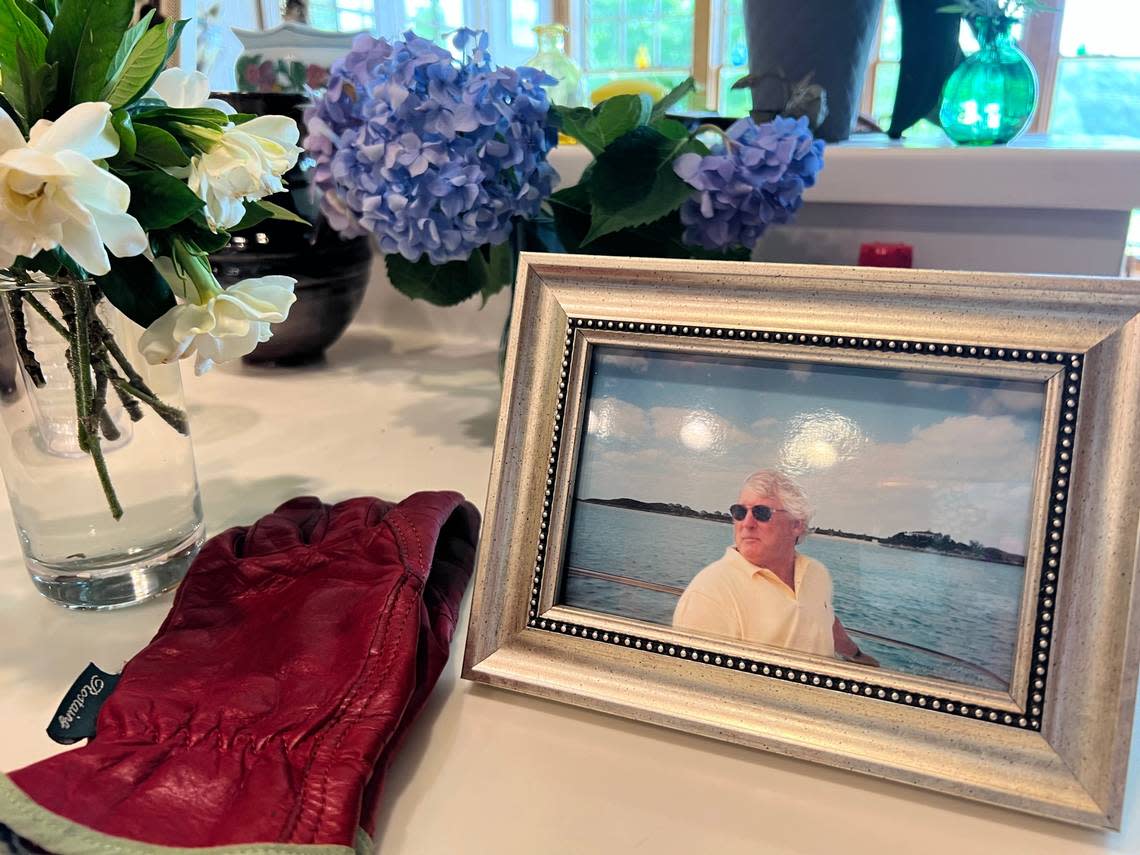How the SPCA of Wake will use a $5M gift to save more cats’ and dogs’ lives in NC
Chanah Wizenberg said the SPCA of Wake County has been a lifesaver in helping her feed her dog and cat.
She has an 8-year-old Labrador/hound mix named Asha and a 5-year-old orange tabby named Marmalade.
Like others on a limited income, Wizenberg has sometimes had to choose between buying pet food and buying other necessities. The SPCA helps by delivering free donated food for dogs, cats and small animals on the first Tuesday of each month.
“Everything has gone up in price, including pet food,” said Wizenberg, a swim instructor and freelance writer. “I’d be really hurting without their service. It helps me out when things get tighter financially.”
Soon, she’ll also take advantage of the SPCA’s $5 rabies clinic when she takes in Marmalade for his shot.
The programs are just two services the SPCA of Wake County hopes to boost when the 55-year-old organization opens a regional campus in Raleigh next year. It will include the current Pet Adoption Center and a new Pet Admissions and Resource Center with a learning center and spay and neuter clinic.
The SPCA has raised $14 million toward a $21 million goal for the new campus as of June.
Kim Janzen, the SPCA’s president and CEO, said the campus will help more families with food and vet bills, better support rural animal shelters, and work with youth groups to build human-animal relationships.
‘In a position to help’
Susan Ward, a retired artist and philanthropist, recently donated $5 million to help build what will be called the Susan and Randall Ward Regional Campus for Pets and People. It is the largest gift in the SPCA’s history.
In 2008, she and her late husband, Randall Ward, helped the organization open its spay and neuter clinic. By reducing unwanted litters, the clinic has helped reduce euthanasia in the area, of which Ward said she is most proud.
The couple always planned to do something big, Ward said during an interview at her home. Several years ago, they adopted one of their beloved cats, Benson, from the SPCA after the black cat was rescued from a neglectful home.

In June 2021, Randall Ward died unexpectedly, just a few days before his 76th birthday.
“Randy was a kind and honest man who always wanted to give back,” his widow said.
“He said, ‘If I ever have to question whether I have done my part or tried to make this world a better place, all we have to do is look and see what we’ve done at the SPCA or the vet school and know that we’re doing something,” she said.
Randall Ward, the creator and former owner of This End Up Furniture Co., was a graduate of N.C. State University. The Wards have been long-time supporters of the school and the College of Veterinary Medicine, where there is a bronze statue of their dog Hannah, a Newfoundland, whose treatment at the college for a heart valve disease helped extend her life five more years.
Ward said Hannah’s sister, Mae, rarely left Randall’s side. Now, the 160-pound fluffy black dog is her biggest protector.
‘Constant crisis mode’: Triangle animal shelters grapple with continued crowding
Solving the problem at the roots
Every year in North Carolina, about 200,000 dogs and cats enter a shelter in the state — and fewer than half of them make it out and into loving new homes.
Last year, the SPCA of Wake placed over 4,250 pets in new homes, provided over 7,300 spay and neuter surgeries and other low-cost services, and supplied over 159,000 pet meals to food-insecure households. The organization only euthanizes animals that are very sick or cannot be rehabilitated.
“Fortunately, we’re in a position where we don’t have to euthanize for time and space, but we still have limited bandwidth from a staffing perspective,” Janzen said. “Everybody has limited resources.”
The SPCA of Wake also works in over 59 counties to help shelters and will travel to rural shelters to transfer animals to Wake County where more families are looking to adopt, Janzen said.
The new campus will enable the SPCA to give more support to government-run shelters like Wake County’s animal center on Beacon Lake Drive in Raleigh with spay and neuter clinics and education.
“Adopting animals out is one solution,” Janzen said. “but if we can be more proactive and reach animals before they even enter the shelter system, then that puts us in a much better position to make progress. ‘Us’ collectively, not just the SPCA.”
For pets and people
During the COVID-19 pandemic, the SPCA partnered with Meals on Wheels of Raleigh to deliver pet food to owners already receiving meals for themselves.
The partnership has continued, and Sharon Lawson, the director of program services, said the group now serves about 600 clients with pets each month.
“People will feed their pets before they eat, because they’re a part of the family,” Lawson said. “They depend on their pets; that’s their socialization.”
Lawson said the regional campus will help Meals on Wheels of Raleigh solicit and store more food to give their clients.
“A lot of Meals on Wheels organizations have a pet program but because of our storage space, we just couldn’t facilitate a pet program,” Lawson said.
Groundbreaking for the regional campus is set for January and by then, Janzen hopes the SPCA will have reached its financial goal. The campus is expected to open at the end of next year.
“We are extraordinarily fortunate to have a community that believes so strongly in a better future for pets and people,” Janzen said. “Because most people know the SPCA as we were 10 years ago but don’t necessarily realize the depth or breadth of the scope of services that we’re providing.”
